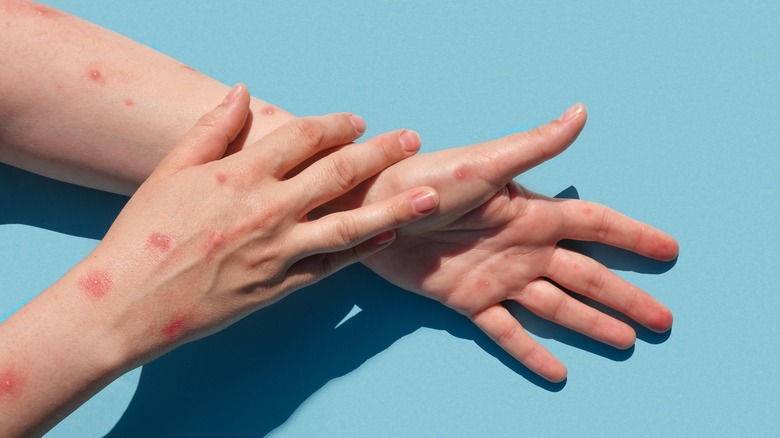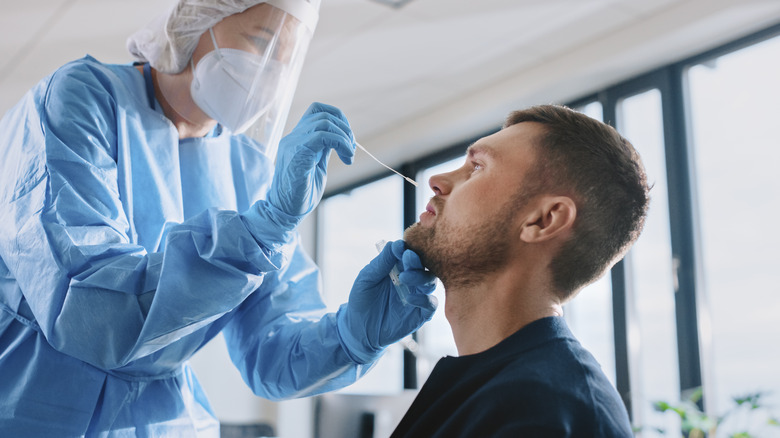Is The Spread Of Monkeypox As Concerning As It Seems?
The world finally seems to be finding its footing following the COVID-19 pandemic. Vaccines are now available for anyone over the age of 6 months, and families are ready to head back out into the world with full force after spending so much time stuck at home. Yet, just as everyone is getting excited for all the fun things that summer has in store, we've been hit with the news of yet another outbreak: a virus called monkeypox.
The virus, which first infected a human in 1970, has remained relatively dormant — until now. Flu-like symptoms accompanied by a rash have been discovered in patients throughout various countries. The United States now has more than 100 human cases at the moment, according to the Centers for Disease Control and Prevention.
This news is causing many people to panic. Will we have to spend another couple of years indoors? Does the world need to brace for another possible pandemic?
What is causing monkeypox to spread so quickly?
According to New York City based expert Dr. Syra Madad — an infectious disease epidemiologist at Harvard's Belfer Center for Science and International Affiars — there's not necessarily a need for alarm when it comes to monkeypox. "Monkeypox is still an uncommon disease in most of the world and does not spread easily between people without close contact," she shared with Health Digest.
The reason that Dr. Madad suspects that the virus is spreading so quickly at the moment due to a few different factors. It's possible that monkeypox could have already been spreading slowly throughout the pandemic without detection. Now that more people spending time in close contact in public settings, the virus is now spreading even more quickly. Less people nowadays are also being informed of the importance of the smallpox vaccine, which can help protect against the monkeypox virus.
Will monkeypox become a pandemic-level problem?
According to Dr. Madad, the monkeypox virus will likely spread even more over the next few months. However, if a person does happen to catch monkeypox, it's usually not serious. "In most cases, it causes relatively mild illness, self-limited without requiring hospitalization and most people make a [full] recovery," Dr. Madad said.
Like any other illness, there are people who are at high risk if they are diagnosed with monkeypox. Immune-compromised individuals, pregnant women, and children are more likely to suffer from serious side effects — like vision loss, pneumonia, sepsis, and skin infections. In fact, anyone under the age of 50 is the most vulnerable to monkeypox.
We must all continue to do our part when it comes to stopping the spread of any virus and protecting those around us: Stay home if you're sick and wash your hands. Otherwise, "there is the potential for monkeypox to become endemic outside of Africa if the current outbreak is not contained," Dr. Sadad warned — which means that the virus would continue to spread at its current rate for the foreseeable future.



